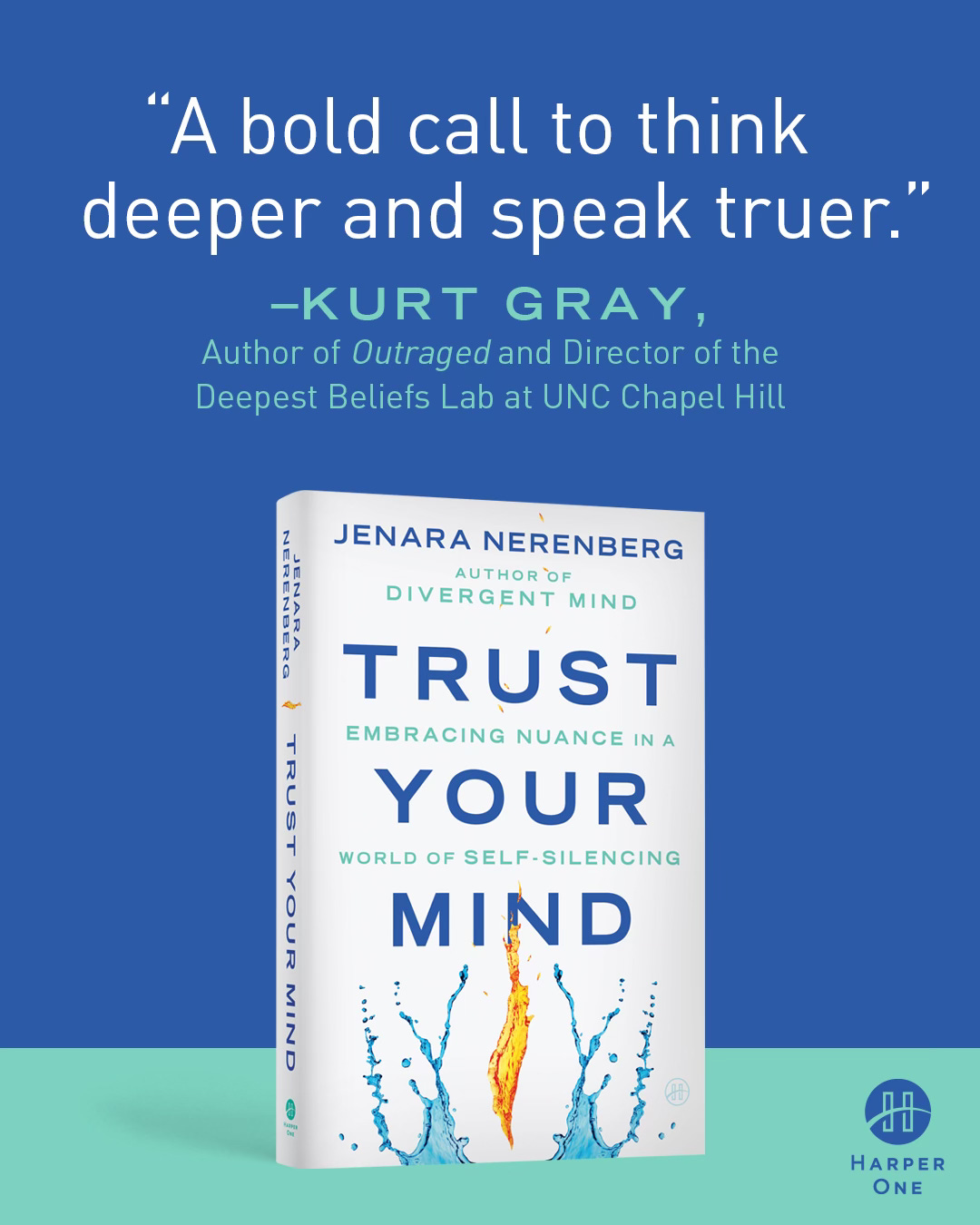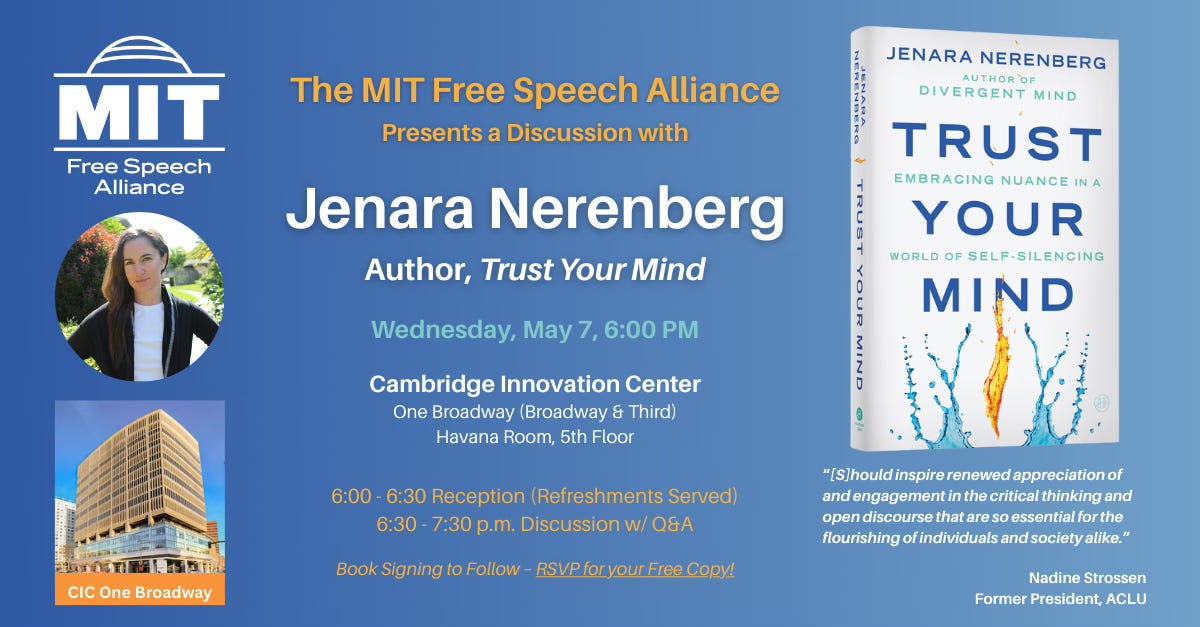My second book, Trust Your Mind, is out today; I just stepped out of the HarperCollins headquarters in NYC, and while I’m getting hate on Instagram (for saying we should talk across party lines), I take comfort in knowing that diverse perspectives are still championed in open-minded pockets of media, literary, and academic circles. As Obama eloquently shared in this video, there was a very recent time where it was understood that things might get heated in debates or national news, but underneath all that, people on both sides would still be able to smile and hug and shake hands earnestly. Where did we go wrong?
I get to the bottom of that question in my book, and much of my tour through the emotional underwater of the culture wars the past few years had me hovering around the early blogger days of the internet, pre social media, as a critical juncture. Early theorists and observers of online behavior actually forewarned of all this faux authenticity and disembodiment and polarization we see today. But back then, the internet felt like a spirited playground. We were still talking about things like “connectivity,” referring to getting everyone, rural villages, “the last mile” connected. Techies weren’t filthy rich yet, and algorithms weren’t being employed to manipulate human emotions.
But psychologists predicted that friendships—real life, embodied physical in-person dynamics—would be drastically altered by a parallel cyber presence. Social scientists, too, told me that in the early days of Facebook, for example, when they realized that people were beginning to mistake online “connection” for CONNECTION, they immediately deleted the app from their life.
That is, a bunch of smart people knew what was coming.
We didn’t magically become polarized. We didn’t suddenly lose the ability to talk across party lines.
A technology entered our lives that made a radical imprint on our species. And it requires a rapid “zooming out” to see it all in place, chronologically, step-by-step, a kind of perspective that we can only now achieve since enough time has passed.
Naming that fork in the road enables us to retrace our steps and figure out a new path forward.
Which brings me to our present moment, our current juncture: something else is astir.
And that is that trickles of nuance and complexity are finally infiltrating online dialogue.
Have you noticed?
I have an article coming out tomorrow that touches on some of this but suffice to say that some of the sharp, random accounts you follow on Insta or YouTube or X or Spotify are not insignificant. Sometimes the tiny singular voices are enough to carry us through difficult transitions.
And so, while we have a challenging weight upon us in the form of frayed social connections, we also have bright lights emerging. While we’ve forgotten how to think, argue productively and relate, a random trickle of voices are reminding and calling us to higher standards. Our virtual world may have scrambled us for a bit, but in the process we had to get sharp and observant and vigilant and discerning again.
I’m not a therapist or a policy wonk, just an anxious Millennial who travels and talks to people and writes it all down. I had a strange, gorgeous, thrilling, awkward upbringing in the Fillmore district of San Francisco. I left high school in my junior year, went to community college early, and started writing as a way to metabolize my rather intense emotions and alien-like observations. Some of you know me in real life. Some of you are in this book.
You should not trust your thoughts immediately at all times. That is not the message of this book. The title is more of an aspiration; how do we arrive? What’s the road of dissent that you need to go down (from your party, your family, your religion, your workplace) in order to know, in your bones, that you have your own back? That you’ve wrestled with the torrents and waves of competing forces long enough to now trust your own mind, engage with the world, and speak from a fortified center that embraces the truth and complexity of your own opinions and ideas?
If the book landed at your doorstep today, I’d love to see your photos, hear what you think, see your reviews, get a message from you, and most importantly to know how your own nomadic wandering is going.
Until then,
Jenara
p.s. A quick reminder that I’ll be speaking at MIT tomorrow, May 7th; register here to attend, and look forward to chatting with you there.









I hope you make it to Portland, Or!